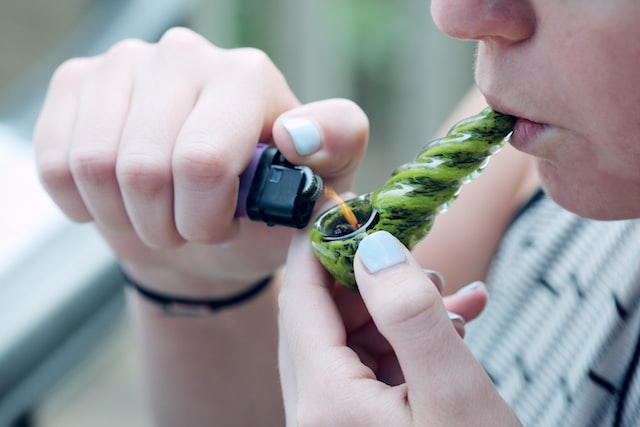Introduction to Anxiety | An Overview
Anxiety is one of the major mental health challenges in the world. It affects people of all ages, gender, and geographical locations.
2019 Statistics by the World Health Organization (WHO) shows that over 301 million people live with an anxiety disorder including 58 million children and adolescents, worldwide. This makes anxiety a major concern but based on the severity the condition on affected individuals.
Definition of Anxiety
Anxiety is the feeling of uncertainty or nervousness about what will happen or a feeling of unease, worry or fear, often about something with an uncertain outcome.
The World Health Organization (WHO) defines anxiety as an emotion characterized by feelings of fear, tension, worried thoughts and physical changes like increased blood pressure, which may result in significant distress or significant impairment in functioning.
On the other hand, apprehension is a feeling of anxiety, fear, or worry that is caused by the anticipation of something bad happening. Apprehension differs from anxiety because it is the anticipation of a negative outcome that can lead to feelings of emotional disturbance, dread or worry. This makes apprehension a collective term while anxiety is specifically a medically significant mental disorder.
What is Anxiety Disorder and Its Signs/Symptoms?
Anxiety disorder is a mental health condition characterized by feeling of excess worry and fear. These disorders can cause irritability, impaired concentration, changes in sleep patterns and can significantly affect a person’s quality of life.
People with anxiety disorders usually have recurring intrusive thoughts or concerns. They may avoid certain situations out of worry. They may also have physical symptoms such as sweating, trembling, dizziness or a rapid heartbeat.
Common Causes of Anxiety
Anxiety is a normal reaction of the body when faced with a challenging situation. However, anxiety can become a serious problem when it lasts for a long period of time and starts to affect one's daily life.
Anxiety can be caused by a variety of factors, such as mental state, genetics, brain chemistry, traumatic life events, stress, and physical health problems.
Individuals who have a family history of anxiety, or those who have experienced stressful events, are at a greater risk for developing an anxiety disorder.
In addition, certain brain chemicals, such as serotonin and dopamine, can affect how the body responds to stress and can increase the likelihood of developing anxiety.
Physical health problems can also lead to anxiety. For instance, those who suffer from chronic pain, fatigue, or other medical issues are at high risk of developing anxiety.
Moreover, people who don’t get enough sleep, consume too much caffeine, or have an unhealthy diet may become more anxious. Changes in the environment, such as a new school or job, can as well contribute to anxiety.
It is important to recognize the signs and symptoms of anxiety, as well as the potential causes, so that proper treatment can be sought.
Types of Anxiety Disorder
The US Department of Health and Human Services (HHS) group long-term anxiety, or anxiety disorders, into five major categories as follows:
a. Generalized Anxiety Disorder (GAD):
Generalized Anxiety Disorder (GAD) is simply a type of anxiety disorder where a person feels excessively worried and anxious on a daily basis, even when there is nothing to be worried about. It is a common mental health disorder that is characterized by excessive and persistent worry or anxiety about a variety of topics, events, or activities.
People with GAD often experience persistent worry, restlessness, difficulty concentrating, feeling on edge, and muscle tension. Treatment for GAD normally involves a combination of medication, therapy, and lifestyle changes.
b. Social Anxiety Disorder (SAD) or social phobia:
Social anxiety disorder is an intense fear of being judged, embarrassed, or humiliated in social situations. It is characterized by overwhelming self-consciousness, fear of negative evaluation, and avoidance of social situations.
People with social anxiety disorder may fear being in the spotlight, starting conversations, or being assertive. They may have physical symptoms such as blushing, sweating, trembling, nausea, and difficulty speaking. Social anxiety disorder or social phobia is characterized by low self-esteem, shyness and social withdrawal.
c. Panic Disorder:
Panic disorder is an anxiety disorder characterized by unexpected and repeated episodes of intense fear accompanied by physical symptoms such as chest pain, heart palpitations, shortness of breath, and feelings of impending doom.
The victim of panic disorder feels that something bad is going to happen and even develop fear that incapacitate the physical body and cause pain, even when there is nothing to worry about.
d. Post-Traumatic Stress Disorder (PTSD):
Post-traumatic stress disorder (PTSD) is an anxiety disorder that can develop after someone has experienced or witnessed a traumatic event, such as a natural disaster, serious accident, terrorist attack, war, rape or other violent personal assault.
Persons with PTSD often have persistent frightening thoughts and memories of their ordeal and feel emotionally numb, especially with people they were once close to. They repeated dream and have visions about the ugly experience they had and can even have nightmares and fear when they are alone.
PTSD is popularly known among soldiers who returned from war zones.
e. Obsessive-Compulsive Disorder (OCD):
Obsessive-Compulsive Disorder (OCD) is a mental health disorder characterized by persistent, intrusive thoughts (obsessions) that lead to repetitive behaviors (compulsions).
Patients with OCD may have urges and behaviors that they cannot control. They often have repetitive and unwanted thoughts, or obsessions, that they feel they must act upon.
Individuals with OCD always know their behaviors are not normal but they cannot stop it and such behaviors can cause intense distress and can interfere with a person’s ability to function in everyday life.
Examples of common obsessions and compulsions include fear of contamination, the need to check things repeatedly, or constantly counting or organizing.
Besides the one’s mentioned above, there are other disorders still categorized by some sources as anxiety disorder. Example is the specific phobia disorder.
f. Specific Phobia Disorder:
Specific phobias are a type of anxiety disorder that involves a strong, irrational fear of a specific object or situation. People with specific phobias experience intense fear when they encounter the object or situations they are afraid of, and often go to great lengths to avoid it.
Common specific phobias include fear of animals (zoophobia), fear of flying (aerophobia), fear of heights (acrophobia), and fear of needles (trypanophobia). This disorder is the most popular form of disorder.
Research by the United States National Institute of Health as published on the National Library of Medicine shows that about 5.5% to 12% of people worldwide have phobias. It added there is prevalence of phobia among women over men.
In most cases, specific phobia is not a serious mental health condition but phobias precede most mental health issues because it is a sign of mental vulnerability, hence, are signs of serious disorder that need immediate attention.
Below are the Strategies to Help You Quickly Overcome Anxiety, Worries and Apprehension
1. Identify the Triggers of Your Anxious Feeling:
What sets off your anxiety? Once you know what causes your anxiety, you can begin to work on avoidance or de-escalation tactics.
Write down what makes you worried or anxious and when it happens. This can help you figure out what situations or people make you anxious and help you avoid them.
If you know that you are not mentality strong, do not go to places or watch videos that you can see traumatic scenes to avoid post traumatic disorder. Also, do not watch videos with viewer’s discretion tag if you have traumatic disorder.
2. Learn Relaxation Techniques Such as Meditation, Deep Breathing, and Meditation:
Relaxation techniques such as stretching, deep breathing, yoga, or meditation can help reduce stress and promote relaxation. This can be anything from deep breathing exercises to progressive muscle relaxation to meditation. Find what works for you and stick with it.
Relaxation will help minimize the tension associated with your apprehension and reduce the anxiety syndrome.
3. Avoid Caffeine containing products:
A cup of coffee in the morning may seem like a good way to start the day, but too much caffeine can actually worsen anxiety symptoms.
This is because Caffeine can worsen anxiety by increasing heart rate and blood pressure, which can make physical symptoms of anxiety worse. It can also increase the intensity of racing thoughts, making it more difficult to calm down.
Caffeine can also increase the production of stress hormones such as cortisol, which can make it more difficult to relax. Therefore, if you have history or signs of anxiety, only take decaffeinated food, medicine or drink options. If you are to take tea, take green tea instead.
4. Get Your Body Moving through exercise:
Exercising regularly can improve mood and help reduce anxiety by releasing endorphins, which are hormones that make us feel good and reduce levels of stress.
Exercise also helps to improve sleep quality, which can be a big contributing factor to anxiety. Additionally, it can help to improve self-esteem, as well as helping to provide a distraction from worries and apprehension associated with anxiety disorder.
Even a moderate amount of activity can make a difference. You can try press-up, jogging, take a walk, play sport, dance, or indoor activities whenever you feel anxious.
5. Connect with Others to Lose Focus:
Social interaction can help take the focus off of your anxiety and give you a chance to connect with others who may be going through similar experiences. Socializing with people is a way to stay active and happy.
6. Practice Mindfulness for a Relief:
Paying attention to the present moment can help ground you and prevent racing thoughts that can bring traumatic memories.
Avoid your thoughts from wandering about your past experiences or the future challenges.
Mindfulness helps you live at the moment, hence, preventing unnecessary worries and emotional conflict. It also helps you stay calm, and in the process getting to a state of accepting yourself and your current situation, hence, suppressing your anxiety or apprehension.
7. Get enough sleep to Reduce Stress:
Lack of sleep can worsen symptoms of anxiety and makes it harder to cope with stress.
Getting enough sleep can help reduce anxiety symptoms by calming the mind, restoring energy, and improving concentration. When the body is well-rested, it is better equipped to handle the stressors of daily life, which can reduce anxiety symptoms.
A good night's sleep can help reduce the amount of stress related hormones such as adrenaline and cortisol. Also, regular sleep can help regulate mood, which can help reduce the intensity of anxious feelings.
8. Avoid Substances (like drugs, alcohol, and nicotine) abuse:
These substances can aggravate anxiety and make it difficult to cope with stress, even worst than caffeine.
Drugs, alcohol, and nicotine can worsen existing anxiety disorders by increasing feelings of nervousness, tension, and fear. They can also interfere with the effectiveness of anxiolytic medications, making it harder to manage symptoms.
Hard drugs are known to cause physical symptoms such as increased heart rate, sweating, and difficulty breathing that can further exacerbate feelings of anxiety. The above substances can also lead to changes in brain chemistry that can make anxiety worse.
9. Talk to an expert, someone you trust or someone who can understand your situation:
Talking to a friend, family member, therapist, someone who have had similar experience or counselor can help you work through your anxiety and develop a plan to manage your worries effectively.
A good therapist will identify the category of your anxiety and know the way forward to help you through it. Visiting the hospital is a great way to go. There are many helpful medications and strategies that the doctor can prescribe or recommend to help handle you conquer anxiety and relax your mind. Supplements like Omega-3 fatty acids and others can help but do not self-medicate.
10. Avoid making major life decisions when you're feeling anxious:
Anxiety destroys mood and can make you take decisions out of your will. An anxious mind is void of passion and sense of reality. That is why it is not advisable to take major decision when you are feeling anxious.
You can stay calm to contemplate or better postpone your decisions until you feel good. This can help prevent you from making rash decisions that you may later regret. Making a wrong decision and later realizing that you have made a great mistake, would only worsen your anxiety.
11. Always Cloud Your Mind with Positive Thoughts:
Positive thinking is a great way to heal oneself from emotional turbulence like worry, anxiety or apprehension. Every mental health related issue can be tamed when the mind is positive.
Even when you might have experienced all sorts negative things in your life, do not allow those negative experience to have a place in your thoughts. Let your positive experience overwhelm every other thing that bothers you. This will help you feel relieved and hopeful.
12. Read Good Books and Helpful Resources:
Reading good books and helpful resources can be an effective way to cope with anxiety and begin the recovery process. Books on topics such as anxiety, mindfulness, self-help and self-care can provide valuable insight and advice that can be used to help manage anxiety.
Additionally, reading articles and journals that discuss anxiety or related mental health issues can provide a better understanding of the condition and inspire new strategies to overcome them.
Reading can help to reduce stress, provide distraction, and help to reframe anxious thoughts and worrisome feelings.
13. Count Your Blessings and Name Them One by One:
A songwriter says “count your blessings, name them one by one, and it will surprise you what the Lord has done”.
What are the things you are thankful for? What are the most beautiful things you have ever seen in life or your best experience?
It can’t be all that bad. There must be something to be grateful about. It can be the fact that you are alive when others were not lucky enough like you. It could be the clothing, the shelter, the good health, the food, the people around you, the eyes that you have to see, the fact that you have not lost your mind and a lot of other things.
List those blessings and let your mind be thankful to God for those experience. When you list those blessings, you would always know that it is not all bad with you. Celebrating your little wins will help calm you down and give you hope and quick recovery from your anxiety.
14. Engage in Creative Activity:
Painting or Coloring in a Book or canvas, journaling, writing or other creative works can help you recover from anxiety so quickly. When engaging in creative activities, make sure to take your time and enjoy the process.
Don't worry about the end result. Instead, focus on the journey and take pleasure in the creative process itself. Taking a mindful approach can help you relax and focus on the present moment, and help to keep your anxiety at bay.
Creative activities can also be used as a form of self-expression. Whether you are painting, journaling, or writing, it can be a great way to get out your thoughts and feelings.
You can use your creative activity as an emotional outlet and use it to process your thoughts and feelings. When you're done, you may find yourself feeling refreshed and energized.
15. Find Other Activities that Promote Relaxation:
Activities such as cuddling with someone you love, kissing a partner, or tearing strips of paper can go a long way in helping calm down your feelings. Other activities that can help include petting your pet, and drawing on the ground, among others.
Note: Engaging in sexual activities with a partner can be an enjoyable and intimate experience, yet it is not a dependable method of managing stress and anxiety. Instead, starting your everyday with positive activities can help.
16. Optimize the Healing Power of Music:
Engaging in music as a form of therapy can have a powerful effect on reducing anxiety and promoting healing. Whether it is singing, writing songs, playing instruments or other musical activities, these activities can provide a therapeutic outlet to work through and reduce feelings of worry and stress.
Not only does music provide a creative and expressive outlet, but it can also be a source of comfort, joy and connection. Music has the power to bring us into the present moment, helping us to relax and release tension. By optimizing the healing power of music, you can experience a deep sense of calm, connection and healing.
17. Catch Fun, anyhow:
There's no better way to lighten your mood and cope with anxiety than by having fun. Call friends that can make you laugh, express yourself, and watch some of your favorite movies, funny mimes, or viral pranks.
You can also go out to places you can catch fun, whether with friends or new people you are about to meet. Going out, meeting new people and talking to your friends can help you relax, while still being able to express yourself. Being able to laugh, enjoy yourself and just have some fun is one of the best strategies to manage your anxiety.
18. Take a Good Course or Do something worthwhile and beneficial:
Taking a good course can be an incredibly rewarding and beneficial experience. You can choose to help others by engaging in community programs, offering guidance and support to those who need it, teaching them new skills or embrace positive habits that can boost your life's objectives.
You can also take a class or enroll in a program that allows you to learn something new and gain valuable skills. Alternatively, you can opt for a self-study course, which can provide you with the opportunity to dive into a specific topic in greater detail.
Doing something worthwhile and purposeful can give you a sense of accomplishment and help to reduce your anxiety and worries.
19. Try Cognitive Behavioral Therapy (CBT):
Cognitive Behavioral Therapy (CBT) is a form of psychotherapy that focuses on identifying and changing negative thought patterns in order to improve mental health and wellbeing. CBT is done by a mental health therapist and helps in related issues including anxiety.
It works by helping individuals recognize and challenge the thoughts and beliefs that lead to negative emotions, and instead think and act in ways that lead to more positive feelings and behaviors.
CBT is a short-term, goal-oriented form of therapy that can be used to treat a variety of mental health issues, including depression, anxiety, PTSD, substance abuse, and phobias. Besides, CBT, including techniques to fight anxiety in your goal setting list can help.
Conclusion
You can overcome your anxiety and conquer your worries and all forms of apprehension by simply applying certain strategies or engaging in helpful activities that can heal your mind. By identifying the triggers of your feelings, learning relaxation techniques, avoiding substance abuse, practicing mindfulness, getting enough sleep and trying the tips in this article, you can effectively deal with anxiety. Cognitive Behavioral Therapy (CBT) can also be utilized to help manage anxiety and worries in a more efficient way. With the above strategies, you will find yourself so renewed, relieved and free from your emotional trauma and whatever makes you anxious.












